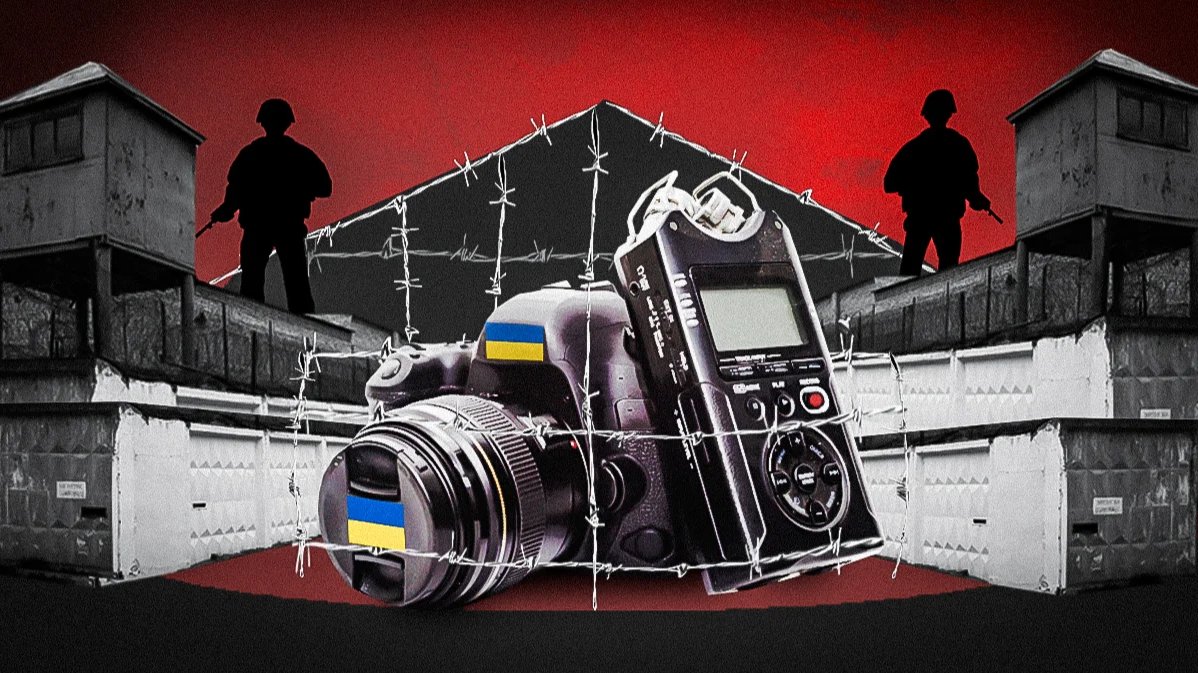Last month, Ukrainian journalist Viktoria Roshchyna, who disappeared without trace almost nine months ago while on assignment in occupied eastern Ukraine, was revealed to be in Russian custody and her name was added to the already long list of illegally detained reporters in the country.
Never a country that has made journalists feel safe, Russia has acted with particular disregard for the human rights of Ukrainian journalists, at least 28 of whom are currently behind bars, according to the Ukrainian National Union of Journalists.
A number of those in Russian captivity worked as journalists in annexed Crimea before the war, while others covered the Russian invasion and wrote about life under Russian occupation. Some have been deemed prisoners of war, while the whereabouts of many others remain unknown. Novaya Europe looks at some of the most egregious cases.
Viktoria Roshchyna, 26
The Russian Defence Ministry finally acknowledged that Ukrainian journalist Viktoria Roshchyna had been detained in occupied Ukrainian territory and is now in Russia. The Russian authorities sent a note confirming her detention to Volodymyr Roshchyn, Viktoria’s father.
He received the letter, dated 17 April, some five days later. He then contacted the Red Cross, which confirmed that his daughter was being held in custody, but said that it had not been granted access to her.

Victoria Roshchyna. Photo: NSJU
Ukrainian independent media outlet Grati wrote last month that the Defence Ministry’s reply contained no information on where the journalist was being held, what charges she was facing or any information on her health. The Coordination Headquarters for the Treatment of Prisoners of War, a Ukrainian governmental body, classified Roshchyna’s status as “prisoner of war”.
In March 2022, she was detained by the FSB in occupied Berdyansk, in Ukraine’s southeastern Zaporizhzhia region, but was released 10 days later.
While in custody, she was interrogated repeatedly and accused of spying, and was only released after agreeing to record a video statement saying she had no complaints about her treatment at the hands of the Russian authorities.
Roshchyna covered Russia’s full-scale invasion of Ukraine from the early days of the war as a freelance journalist for independent news outlets Ukrainska Pravda, the International Women’s Media Foundation (IWMF), Radio Liberty, Hromadske and others.
In March 2022, she was detained by the FSB in occupied Berdyansk, in Ukraine’s southeastern Zaporizhzhia region, but was released 10 days later. While in custody, she was interrogated repeatedly and accused of spying, and was only released after agreeing to record a video statement saying she had no complaints about her treatment at the hands of the Russian authorities. Upon her release, she received a Courage in Journalism Award from the IWMF.
Roshchyna left Ukraine for Poland on 27 July 2023 and planned to travel to eastern Ukraine via Russia three days later. She last made contact with her editors on 3 August, reporting that she had spent several days attempting to cross the border. She was last known to be reporting from an occupied area of the Zaporizhzhia region where she was gathering material for articles about the elections held by the occupying Russian authorities, and on the consequences of the collapse the Kakhovka dam and the situation at the Zaporizhzhia Nuclear Power Plant.
Roshchyna’s family had previously contacted the Public Prosecutor’s Office in the occupied Ukrainian city of Mariupol, but had been informed that she was not facing any charges in that jurisdiction. Letters to the Russian Prosecutor General’s Office, the Investigative Committee and Russia’s Commissioner for Human Rights, Tatyana Moskalkova, had all gone unanswered.
It is still unknown where Roshchyna is being held.
Dmytro Khylyuk, 48
Ukrainian journalist Dmytro Khylyuk worked in Kyiv for Ukraine’s UNIAN news agency. He was abducted from the village of Kozarovychi in the Kyiv region while the area was occupied in spring 2022.
According to independent Ukrainian media outlet Grati, Russian soldiers detained Khylyuk along with his father, Vasyl, on 3 March 2022 as the men were leaving an air-raid shelter to see if their house had been damaged by shelling. Vasyl was released eight days later, but Dmytro’s whereabouts were not known for a long time.
Ukrainian NGO Media Initiative for Human Rights ascertained that Russian soldiers held Khylyuk along with other hostages in warehouses in the Kyiv region. When the Russian military subsequently retreated, he was taken with them to Russia. In May 2022, human rights advocates learned from an interview with former POWs that Khylyuk was being held prisoner in the town of Novozybkov in the Bryansk region of western Russia.
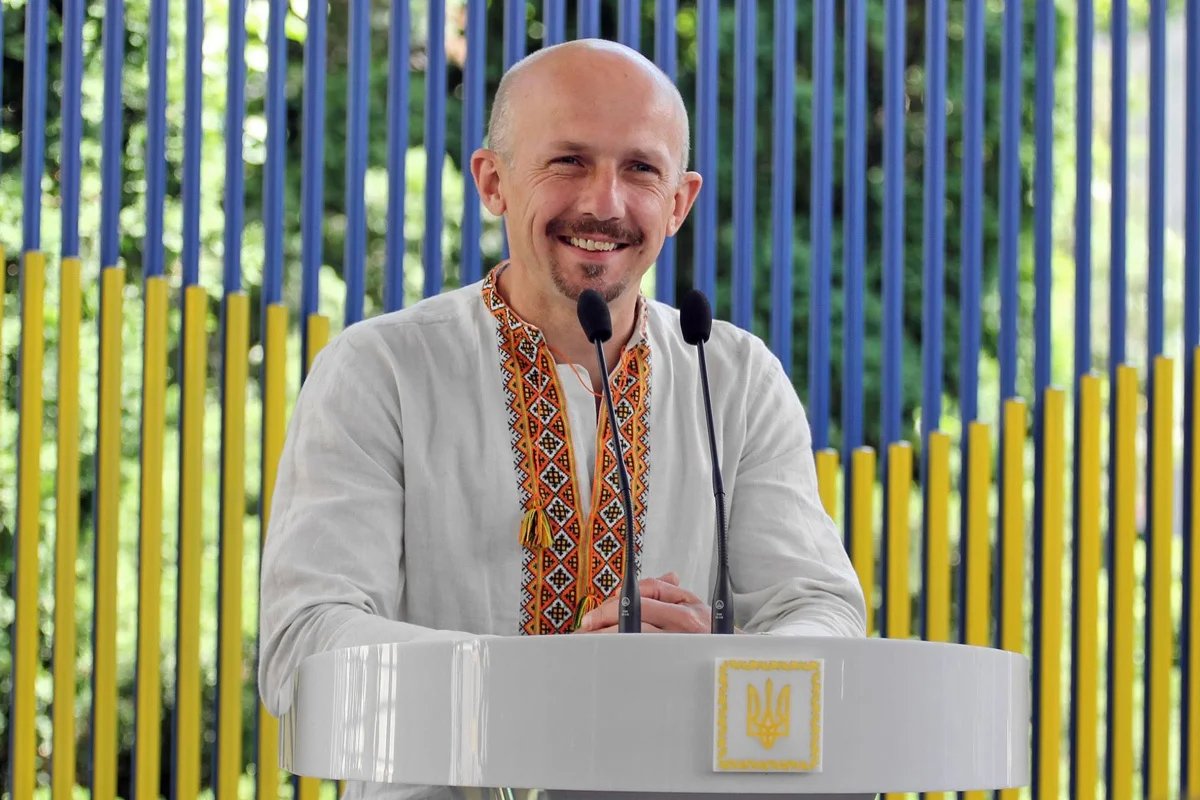
Dmytro Khylyuk / Facebook
Reporters without Borders interviewed a man who said he had been transported with Khylyuk in a truck from Novozybkov to a prison in the village of Pakino, in the central Russian Vladimir region. Khylyuk allegedly told him that he had spent at least three months in solitary confinement and had been unable to contact his family or colleagues. In the summer of 2022, Khylyuk’s relatives received a brief note dating from April in his handwriting, stating that he was still alive.
“They’re not saying that he is an agent or a soldier, but nevertheless cite the Geneva Convention on treatment of prisoners of war. So we can assume that they consider him to be a prisoner of war, although he is not one,” said Khylyuk’s lawyer, Oksana Mykhalevych.
Only in April of this year did the Russian Defence Ministry confirm that Khylyuk was in custody, without specifying his precise whereabouts.
“They’re not saying that he is an agent or a soldier, but nevertheless cite the Geneva Convention on treatment of prisoners of war. So we can assume that they consider him to be a prisoner of war, although he is not one,” said Khylyuk’s lawyer, Oksana Mykhalevych.
In the summer of 2023, a Red Cross representative confirmed meeting Khylyuk in person while visiting a Russian pretrial detention facility.
“The Red Cross provided very few details about the meeting, but the fact that they saw him alive is already positive. The meeting was brief and not just with him. I understand that they were inspecting places where prisoners of war are being held. His parents tried to send him letters through the Red Cross. The Red Cross received the letters, but we don’t know whether they reached Dmytro,” Mykhalevich said.
Serhiy Tsyhipa, 62
Russian soldiers abducted Serhiy Tsyhipa, a journalist and writer from Nova Kakhovka, in southern Ukraine’s partially occupied Kherson region, in March 2022. He was subsequently transported to the town of Skopin in central Russia’s Ryazan region.
In October 2023, the Crimean Supreme Court sentenced Tsyhipa to 13 years in prison on espionage charges. Russian investigators claimed that Tsyhipa was a Ukrainian agent and accused him of providing Kyiv with sensitive military information on the location, size and transport routes of Russian army divisions.
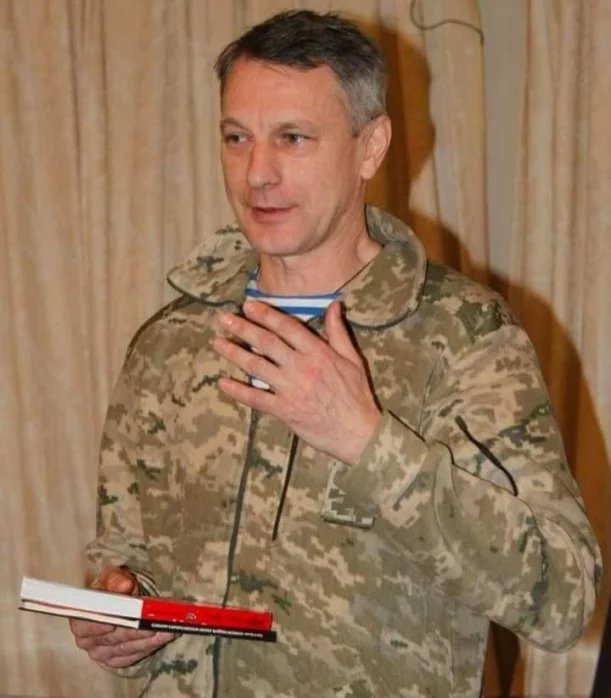
Serhiy Tsyhipa. Photo: kakhovka.rayon.in.ua
When the war broke out, Tsyhipa conducted volunteer activity and tried to organise assistance to people in his local area. He also took part in protests in support of Ukraine and wrote about Russian operations in the south of the country.
Vladyslav Yesypenko, 55
In early March 2021, Vladislav Yesypenko, a freelance journalist who worked for the Crimean affiliate of Radio Free Europe/Radio Liberty, Krym.Realii, was detained on the annexed peninsula by Russian FSB officers on suspicion of having “ties to the Ukrainian special services” and “storage and transportation of ammunition”. Yesypenko denied the charges. For the first 27 days of his detention, he wasn’t granted access to an independent lawyer.
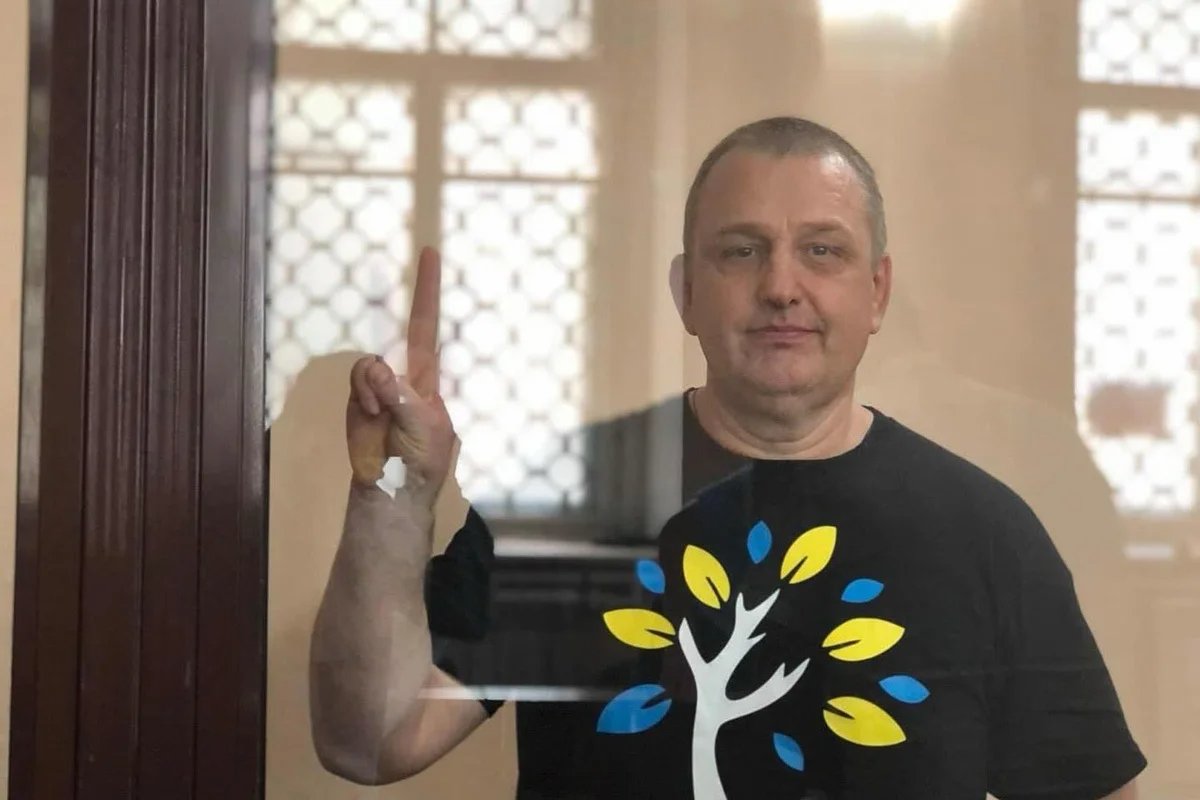
Vladyslav Yesypenko. Photo: “Crimean Solidarity” / Instagram
On 16 February 2022, a court in Crimea sentenced Yesypenko to six years in prison, though Yesypenko says that his confession was obtained through torture, including electric shocks.
Yesypenko wrote about social and environmental issues, and also conducted opinion polls on the Crimean population. Yesypenko’s colleagues are convinced it was due to these activities that he’s now in jail, and that, neither a spy nor a saboteur, he was “simply a journalist who told the truth about life in annexed Crimea”.
Iryna Danylovych, 45
Danylovych is a nurse, human rights advocate, civil activist and journalist who was abducted by FSB employees on her way home from work on 29 April 2022. Grati reported that the FSB held Danylovych in a basement for a week, interrogating her and forcing her to confess to treason and to collaborating with the Ukrainian army.
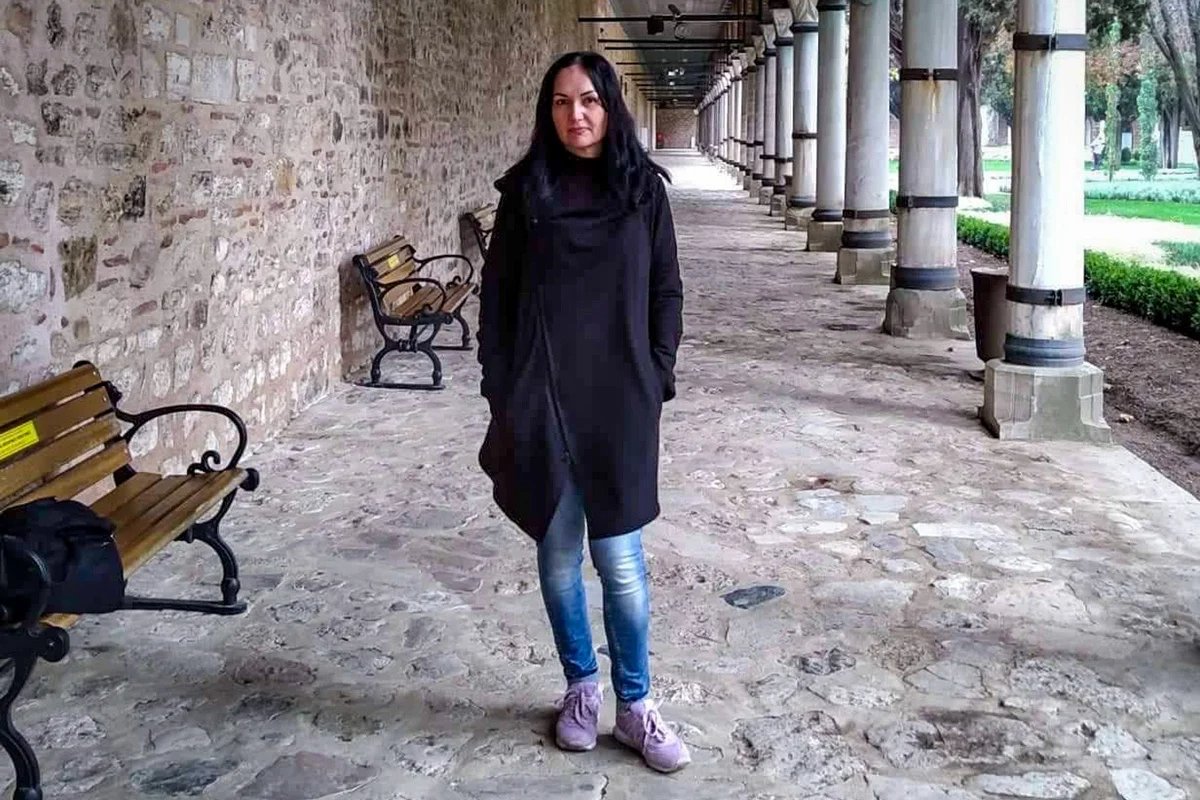
Iryna Danylovych. Photo from the family archive / Grati
At her trial she said that 200 grams of explosives had been planted in her glasses case. Investigators claimed that the explosives were found on her person immediately after her detention. On 28 December 2022, a court in the Crimean city of Feodosia sentenced Danylovych to seven years in prison.
Iryna Levchenko
Levchenko, who began working as a journalist in 1981, was a correspondent for regional and national publications including Ukrainian news website Telegraf. She and her husband were abducted by Russian soldiers in occupied Mariupol in May 2023, despite the fact that she had given up journalism due to her security concerns following the outbreak of the war, according to her former employers.
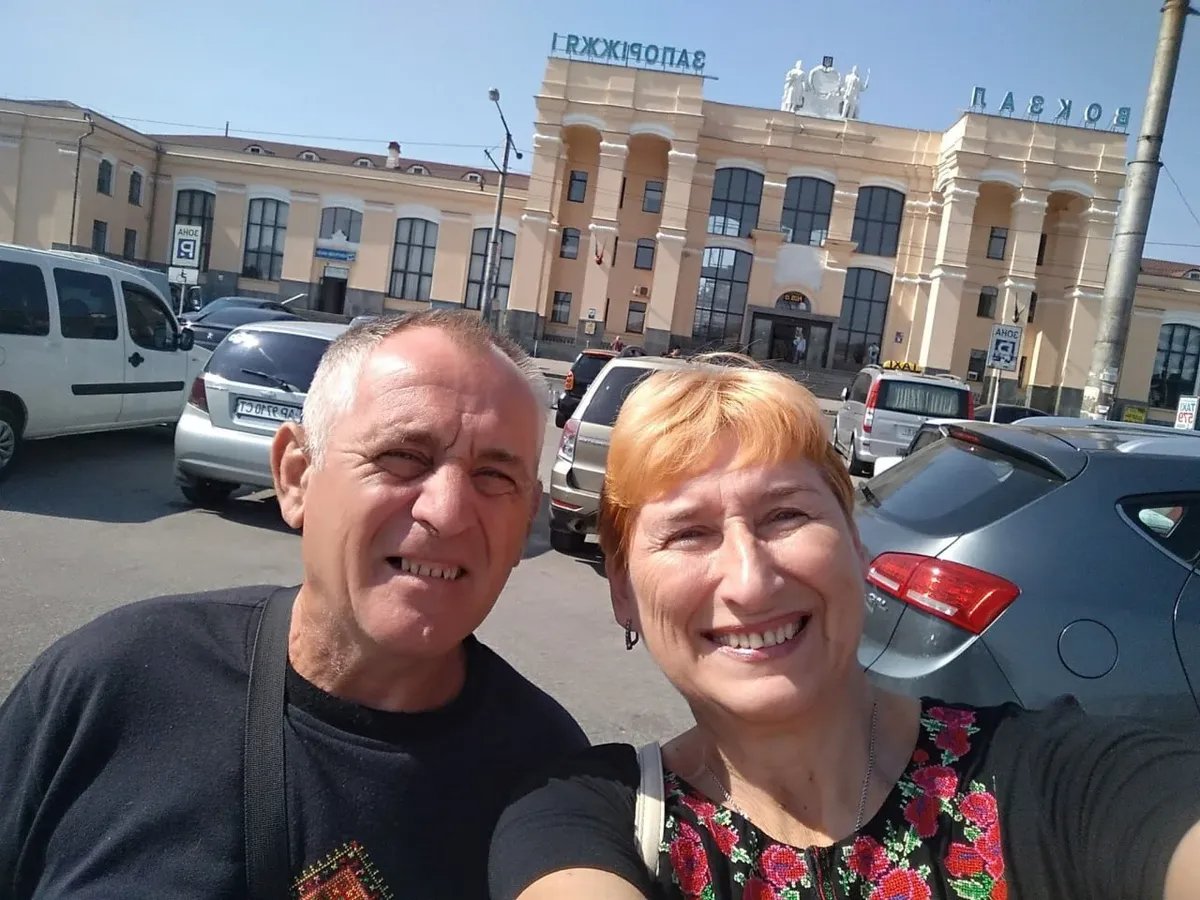
Iryna Levchenko and her husband Alexander. Photo: Telegraf
The Zaporizhzhia Centre for Journalistic Solidarity wrote in May last year that Iryna and her husband had been held in a cold basement with a concrete floor, and given almost no food. Her sister Olena Rudenko said that Levchenko’s husband, Oleksandr, was able to get a letter to her in which he said he was being charged with terrorism.
Heorhiy Levchenko and Anastasia Hlukhovska
Journalists Levchenko and Hlukhovska were detained by FSB officers in August 2023, but news of their arrest was only confirmed in October. Hlukhovska worked as a reporter at local news website RIA-Melitopol before the war began, while Levchenko ran a RIA-Melitopol-affiliated Telegram channel. According to fellow local journalist Svitlana Zalizetska, the Russian authorities suspect Levchenko of links to terrorism. Their whereabouts are still unknown.
Yana Suvorova, 19
Suvorova was an administrator of the Melitopol is Ukraine Telegram channel and a member of the Ukrainian resistance movement in the occupied city in southeastern Ukraine’s Zaporizhzhia region.
Yana was arrested on 20 August 2023 and nothing was heard from her for the next two months. The Russian authorities charged her with terrorism and recorded a video in which she confessed to FSB officers that she passed information on the transportation of military equipment to the Ukrainians. Suvorova’s current whereabouts are unknown.
Hennadiy Osmak
Osmak is the former editor of the Novy Vizyt website, based in the port city of Henichesk in the Kherson region. He was detained in the region in March 2024, after being denounced to the authorities. He was charged with “participation in an illegal armed group” and declared a “publicity agent” for the disbanded Crimean Tatar Noman Çelebicihan Battalion, which is classified as a terrorist organisation in Russia. He is also accused of supporting a naval blockade of annexed Crimea. An investigation into his alleged ties to the Ukrainian security services is ongoing.
Oleksiy Bessarabov, 47
Bessarabov, who holds both Ukrainian and Russian citizenship, was first detained by the FSB on suspicion of being part of a terrorist group created by Ukrainian intelligence to carry out acts of sabotage on Russian military facilities in annexed Crimea. After studying journalism at Kyiv State University, Bessarabov worked for several years for the Ukrainian naval intelligence centre, and was deputy editor of the Ukrainian magazine Black Sea Security until it was forced to close in March 2014 following the Russian annexation of the peninsula.
Bessarabov was detained in Sevastopol on 9 November 2016 alongside Volodymyr Dudka and Dmytro Shtyblikov, two other suspects in what has since become known as the “saboteurs’ case”.
In April 2019, after a trial held behind closed doors, the three men were found guilty of preparing an act of sabotage and of illegally possessing homemade explosive devices. Bessarabov was sentenced to 14 years in prison.
Asan Akhtemov, 34
Asan Akhtemov, a dual Russian and Ukrainian citizen, lived in the Crimean city of Simferopol, where he worked as a journalist and assistant editor for the Crimean Tatar newspaper Avdet. He also took part in Crimean Tatar cultural and public events.
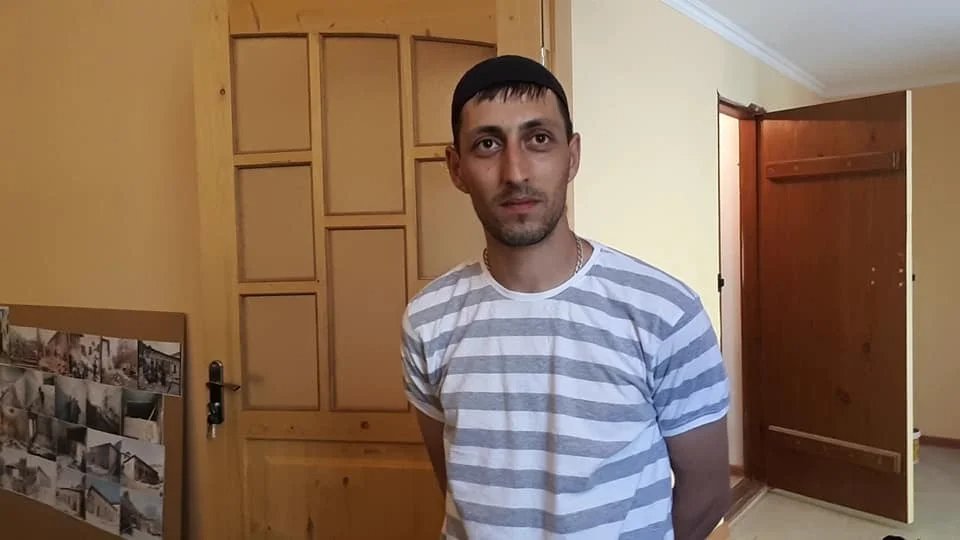
Асан Ахтемов. Photo: Crimean Human Rights Group
He was detained on 3 September 2021 and charged with causing an explosion at a gas pipeline in the village of Perevalne. His brother Aziz Akhtemov and Nariman Dzhelyal, the deputy chairman of the Mejlis, a body representing the peninsula’s Crimean Tatar population that has now been dissolved by Russia, were charged with the same crime.
Human rights campaigners claimed that after Asan was detained, he was beaten, taken into the forest, threatened with execution, and tortured with electric shocks in the presence of his appointed lawyer in order to secure a confession. He was ultimately sentenced to 15 years in a high-security prison in September 2022.
